
Co-ops and Mutuals: a better way?
A debate is emerging in the UK and elsewhere about the possible role of cooperatives and mutuals in building a better economy. But what makes for good performance by a co-op or mutual? What values should enterprises of this kind seek to embody or promote? How can they do it? These questions are, in part, questions about the underlying moral and political philosophy of co-operatvism and mutualism. A British Academy-funded research project, currently being run at Kellogg College’s Centre for Mutual and Employee-Owned Business, aims to explore these questions and develop a framework for evaluating cooperative and mutual performance. The research team would like to know what you think of their ideas. We invite your comments below each article.
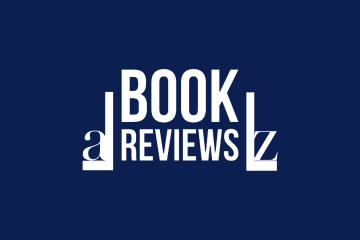
List of Books for Review
Politics in Spires is launching a new series in which contributers are invited review books written by Oxford academics. If you know of a recent (last 24 months) book by anyone at Oxford please submit it to katharine.brooks@politics.ox.ac.uk. Here is a provisional list of books for review:
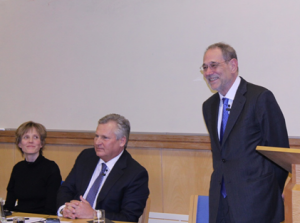
Ukraine and its Place in the World – podcast
Ukraine and its Place in the World - podcast
Play Episode
Pause Episode
Mute/Unmute Episode
Rewind 10 Seconds
1x
Fast Forward 30 seconds
00:00
/
Subscribe
Share
RSS Feed
Share
Link
Embed
Download file | Play in new windowOn 14 March 2014 the Russian and Eurasian Studies Centre at St Antony’s College hosted the 2014 Elliott Lecture: “Ukraine and its Place in the World”. Organised by Dr Paul Chaisty in September of last year, the seminar was intended to explore the implications of the November Vilnius summit and the prospects for the integration of Ukraine into the EU. Given the extraordinary events in the region over the last few months, the focus became Ukrainian territorial integrity. Held on the eve of the referendum in Crimea, the three participants considered the causes of the Ukrainian revolution and the ways in which the outcome of the Crimean referendum is likely to shape regional and international relations over the coming months and years.
Chaired by the Chancellor of the University of Oxford and former European Commissioner Lord Patten, the line-up included two distinguished politicians who have been deeply involved with Ukraine’s integration over many years: former Polish President Aleksander Kwasniewski and former head of NATO, Javier Solana. Dr Gwendolyn Sasse of Nuffield College, Oxford added her expertise on Ukrainian politics, and in particular on the issue of Crimea.
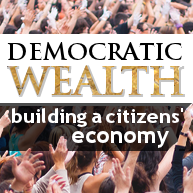
Democratic Wealth: free e-book on building a citizens’ economy
‘Democratic Wealth’ is a collection of essays that challenges the poverty of thinking around economic policy, particularly after the 2007 financial crash. It explores the renewed interest in republicanism and suggests this as a framework to shape an economy that serves the common good. It is a selection of articles from a series published by openDemocracy and Politics in Spires, a blog run by the universities of Oxford and Cambridge.
The book is split into three parts. The first, Taking Back the Economy, features contributions from Philip Pettit, Thad Williamson, Joe Guinan, Jessica Kimpell and others on republican thinking and the market. The second, Republican Economy in Practice, looks at application around the globe, including contributions on cooperatives, sovereign wealth funds, basic income, tax fairness and green solutions and discusses how to develop these models at scale. In the third, Republican Politics, contributors including Quentin Skinner, Alex Gourevitch and Karma Nabulsi discuss the politics of republicanism, from challenging the surveillance state to democratising the workplace and harnessing the demands of new social movements for freedom from domination by the one per cent. It ends with an afterword by James Meadway, senior economist at nef, on clearing a path for a better future.
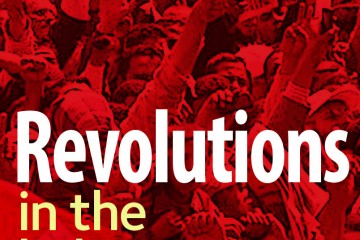
New Series: “Revolutions in the balance”
Ignited in Tunisia in late 2010, the Arab Uprisings quickly swept through a wider region better known for sectarian, ethnic and religious cleavages. In Tahrir Square and Benghazi, citizens – particularly millions of youth – rallied around common demands such as bread, freedom and social justice. Almost three years later, however, the revolutions that began with such high hopes are increasingly defined by ongoing political chaos. Revolution has led to counter-revolution and military coups.
For scholars interested in social movements, particularly religious-based ones, these ongoing events are historic. The evolving nature of the social movements has injected a great deal of uncertainty in the region, and especially the foreign ministries of key players like Iran, Turkey and Israel. While the outcome is unclear, the implications of the revolutions have permanently affected the daily lives and futures of the region’s peoples, not to mention global politics.
With the revolutions entering a new phase, it is now necessary to critically examine the causes, drivers and effects of these seminal events on the internal, regional and international politics of the Middle East and North Africa. While the specific conditions in each country are significant, the individual uprisings cannot be treated in isolation, nor separated from broader developments in the region.
With contributors from across academic disciplines, this blog series seeks to highlight connections between individual countries to better understand how systemic conditions led to a region-wide wave of revolutions.

Constitutional Studies
The Constitutional Studies Programme is a joint initiative between the Faculty of Law and the Department of Politics at the University of Oxford. Its objectives are to increase the amount of interdisciplinary cooperation between law and political science in the field of constitutional studies and to raise the profile of the academic study of constitutional law and politics. This series of online symposia is a forum for exploring these themes in newly published works by recognised academics in these fields. We will include works on constitutional theory as well as on the empirical issues that underlie constitutions—particularly those that are important to uncodified constitutions like that of the UK. It will include posts from scholars in the disciplines of law …
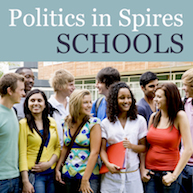
Rethinking Europe in a Non-European World
The international landscape is changing. The emergence of new and powerful global players such as China, India and Brazil lessens Europe’s traditionally strong position on the international stage. One of the questions facing European policy-makers today is thus how Europe can exert influence in an increasingly globalised world despite its comparative decline in military strength and economic capacity vis-a-vis the new emerging powers. In the mid 200s at the University of Oxford, a group of researchers, led by Kalypso Nicolaidis, founded the research project RENEW – Rethinking Europe in a Non-European world – in order to address precisely this question as well as to reflect more widely on Europe’s role in a changing world order.

Revolutions in the Balance
Ignited in Tunisia in late 2010, the Arab Uprisings quickly swept through a wider region better known for sectarian, ethnic and religious cleavages. In Tahrir Square and Benghazi, citizens – particularly millions of youth – rallied around common demands such as bread, freedom and social justice. Almost three years later, however, the revolutions that began with such high hopes are increasingly defined by ongoing political chaos. Revolution has led to counter-revolution and military coups. For scholars interested in social movements, particularly religious-based ones, these ongoing events are historic. The evolving nature of the social movements has injected a great deal of uncertainty in the region, and especially the foreign ministries of key players like Iran, Turkey and Israel. While the …










